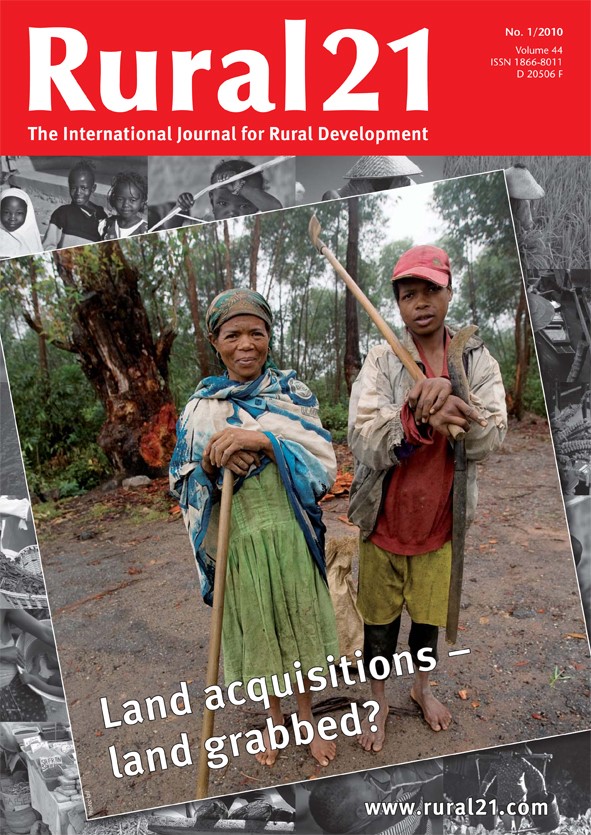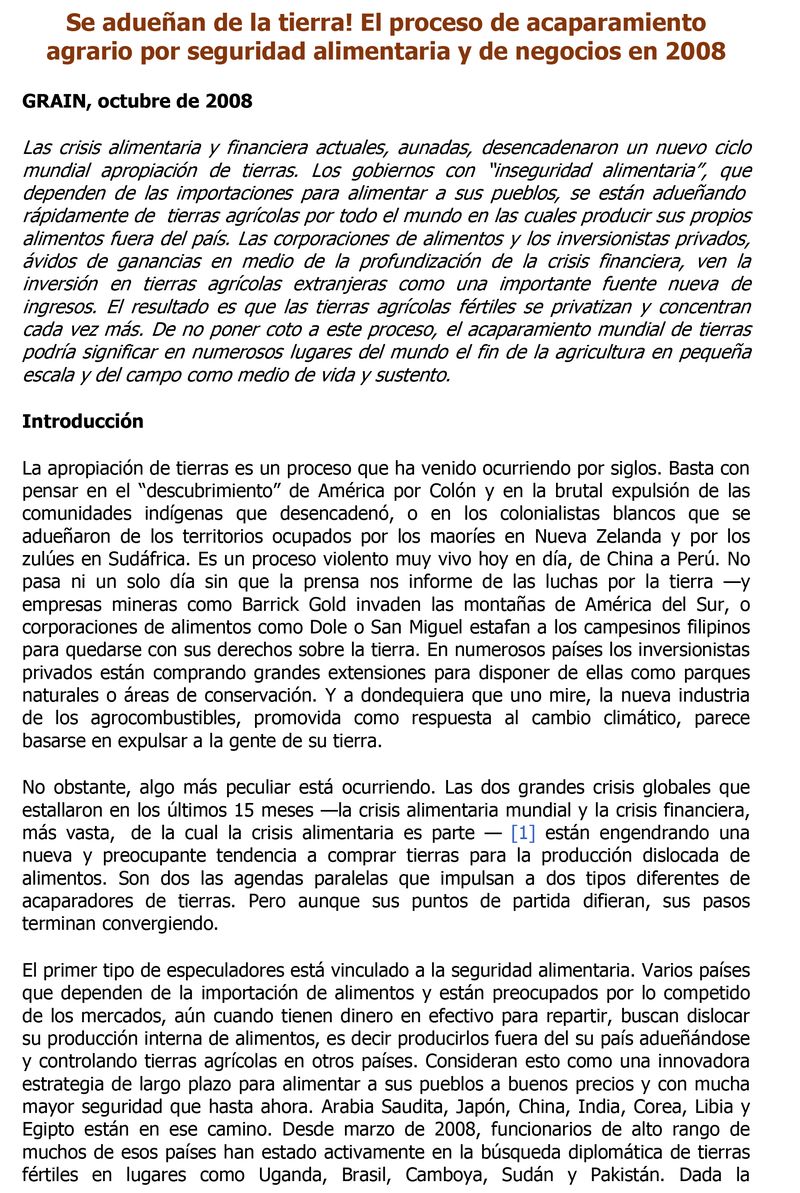GRAIN is a small international non-profit organisation that works to support small farmers and social movements in their struggles for community-controlled and biodiversity-based food systems. Our support takes the form of independent research and analysis, networking at local, regional and international levels, and fostering new forms of cooperation and alliance-building. Most of our work is oriented towards, and carried out in, Africa, Asia and Latin America.
GRAIN’s work goes back to the early 1980s, when a number of activists around the world started drawing attention to the dramatic loss of genetic diversity on our farms — the very cornerstone of the world’s food supply.
We began doing research, advocacy and lobbying work under the auspices of a coalition of mostly European development organisations. That work soon expanded into a larger programme and network that needed its own footing. In 1990, Genetic Resources Action International, or GRAIN for short, was legally established as an independent non-profit foundation with its headquarters in Barcelona, Spain.
By the mid-1990s, GRAIN reached an important turning point. We realised that we needed to connect more with the real alternatives that were being developed on the ground, in the South. Around the world, and at local level, many groups had begun rescuing local seeds and traditional knowledge and building and defending sustainable biodiversity-based food systems under the control of local communities, while turning their backs on the laboratory developed ‘solutions’ that had only got farmers into deeper trouble. In a radical organisational shift, GRAIN embarked on a decentralisation process that brought us into closer contact with realities on the ground in the South, and into direct collaboration with partners working at that level. At the same time, we brought a number of those partners into our governing body and started regionalising our staff pool.
By the turn of the century, GRAIN had transformed itself from a mostly Europe-based information and lobbying group into a dynamic and truly international collective — functioning as a coherent organisation — that was linking and connecting with local realities in the South as well as developments at the global level. In that process, GRAIN’s agenda shifted away from lobbying and advocacy much more towards directly supporting and collaborating with social movements, while retaining our key strength in independent research and analysis.
GRAIN is an organisation that represents no one but itself. However, it is through collaboration and partnerships that we link in with local and national realities and play a meaningful role in our information, research, advocacy and networking activities, be it in the regions or at international level. In fact, we work with many groups in different parts of the world to produce and disseminate collaborative publications and analyses, and engage in other collaborative projects.
Between April and June 2012, GRAIN underwent its latest external evaluation. This evaluation focused on GRAIN’s work on land grabbing, over the period 2008-2011. The executive summary and recommendations are available here. (A copy of the full report can be made available on request.)
Members:
Resources
Displaying 41 - 45 of 49GRAIN — Squeezing Africa dry: behind every land grab is a water grab
Food cannot be grown without water. In Africa, one in three people endure water scarcity and climate change will make things worse. Building on Africa’s highly sophisticated indigenous water management systems could help resolve this growing crisis, but these very systems are being destroyed by large-scale land grabs amidst claims that Africa's water is abundant, under-utilised and ready to be harnessed for export-oriented agriculture.
A threat to global food security
As the world continues to experience a severe food crisis, with over one billion people going hungry, land grabbing – the purchase or lease of land by wealthy, food-insecure nations and private investors from mostly poor, developing nations in order to produce food crops for export – is gaining momentum. Some governments and international agencies believe that the in? ux of money and technology can turn land grabbing into a win–win situation for all involved. But is this really the case?
Rice land grabs undermine food sovereignty in Africa
In the wake of the 2008 global food crisis, African capitals have been buzzing with renewed talk of the need for food self-sufficiency, and rice is often at the top of government agendas. Although everyone agrees on the need to increase production, the solutions coming out of the corridors of power boil down to the old formula of getting more fertilizers and “high-yielding” seeds to farmers.
Seized: The 2008 landgrab for food and financial security
Today’s food and financial crises have, in tandem, triggered a new global land grab. On the one hand, “food insecure” governments that rely on imports to feed their people are snatching up vast areas of farmland abroad for their own offshore food production. On the other hand, food corporations and private investors, hungry for profits in the midst of the deepening financial crisis, see investment in foreign farmland as an important new source of revenue. As a result, fertile agricultural land is becoming increasingly privatised and concentrated.
¡Se adueñan de la tierra!
Juntas, las crisis alimentaria y financiera actuales dispararon un nuevo ciclo mundial de apropiación de tierras. Los gobiernos con “inseguridad alimentaria”, que dependen de importaciones para alimentar a su población, están arrebatando tierras agrícolas fuera de su país en las que pretenden producir alimentos propios. Las corporaciones alimentarias y los inversionistas privados, ávidos de ganancias en medio de la crisis financiera, ven la inversión en tierras agrícolas extranjeras como una importante y nueva fuente de lucro.





